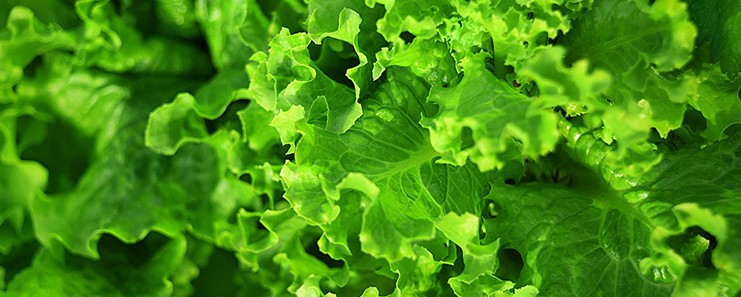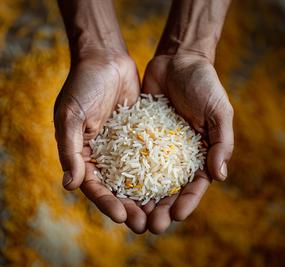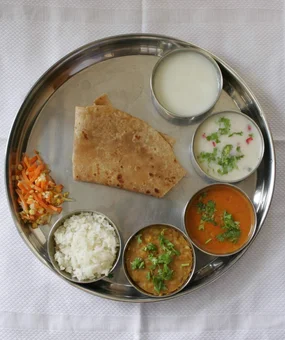Kartik, 30, is a software engineer by profession and a photographer by hobby. His average week comprises a 45-50-hour work schedule. Although a fitness enthusiast, his hectic schedule leaves very little time for him to keep his body in shape. Due to the long hours spent in front of the computer, bare-minimum breaks, and stressful deadlines, Kartik is now a victim of backache, fatigue, and constipation.
At an age where one is expected to work dedicatedly, we often end up compromising our health. While many people would agree that a good fitness regime helps keep such risks at bay, it may just not be good enough. Choosing and following a good and healthy diet should also be taken into account. Irrespective of how hectic one’s life is, we can minimize the risks by selecting the right food.
But is choosing the right food enough? The answer is a resounding no. Along with the right food, we must also learn good eating habits. While there are no set guidelines to follow, here are a few do’s and don’ts that form a part of healthy food habits.
1. See what you are eating
Observe your present diet. What is it you eat more? Are you consuming too many calories in your diet and don’t have enough time to burn them? Then you should probably consider eating something that is less fattening and easy for your body to digest. A couple of minutes spent doing basic yoga postures will also help you burn those extra calories.
Pro-tip: Plan healthy meals in advance and ensure that you have the ingredients at home. It will be easier and faster to cook.
2. Choose green Leafy Vegetables
Add green leafy vegetables to your diet. They are a rich source of proteins, iron, calcium, and fiber. Green leafy vegetables are easy to prepare and quite appetizing too.
Protip: Try to include as many colors as you can on your plate for each meal. It would be ideal if you could include all the six different types of tastes (sweet, salty, sour, bitter, pungent, astringent) at least once a day.

3. Know when to Drink Water
The body receives a significant amount of minerals through water. Drinking plenty of water also helps detoxify the body and gives you a glowing skin. However, avoid drinking water during meals as it slows down the digestion process. It is advisable to have water 30 minutes before or after your meal. Yes, learning to drink water correctly forms a strong base for good eating habits.
Protip: Drink a glass of water right after getting up in the morning, and before brushing your pearly whites. Morning saliva is considered extremely beneficial for digestion. Drinking water in the morning (known as ushapana in Ayurveda) helps in flushing out toxins from the system, cleansing the intestines and ridding the body of diseases.
4. Include Enough Proteins in your Diet
Proteins are vital for the body and should definitely be included in the diet. Broccoli, soybeans, lentils, asparagus, and spinach are some protein-rich foods. Low-fat dairy products are also a rich source of proteins. Ensure that your body receives the required amount of proteins daily.
Protip: Approximately 25 percent of your meal should be good proteins. If you’re regular with active exercise, then the amount could be increased by five percent.
5. Chew your Food
Have you seen a cow chew its food? Its at least 40-60 times.
One of the easiest and obvious ways to digest food is to chew it. Most people often eat their food in a hurry and skip chewing their food properly. While what you eat eventually gets digested, but a barely chewed morsel takes more time and tires your digestive system. Besides, the more you chew your food, the easier it becomes for your stomach to digest it and the more calories you burn moving your jaw. Small steps like learning to chew correctly go a long way in forming a healthy food habit.
Pro-tip: Chew 32-40 times so that the food becomes a paste and is ready for the stomach to do its digestive magic. Sip water and other liquids, roll it around in your mouth and then swallow. This activates saliva, which contains digestive juices.
6. Keep away from Fast Food and Soft Drinks
Although it may appease your taste buds, fast food usually does a lot of harm to the body. It can be unhygienic and also high on harmful fats like trans-fats. Also, carbonated soft drinks have a high sugar content which will lead to obesity, diabetes, and dental caries. Instead of these harmful drinks, refresh yourself with a glass of buttermilk or lemonade.
Protip: Infuse slices of fruits like oranges, or grapes, lemons, and herbs like tulsi or mint in water for a few hours and then drink it. Lemon and cucumber also help to make the water alkaline, which is good for the body. You will love these alternatives to soft drinks. Good eating habits have never been so easy.
7. Cook at home
Instead of ordering pizza from the joint around the corner, use your kitchen and make that dish you’ve been planning on having. Cooking at home is a very good investment as it lets you spend more quality time with your family. It’s a great way of ensuring that everyone in the family follows healthy food habits. Also, it’s a very good idea to sit cross-legged on the floor or a chair while eating. Try it!
Protip: Sukhasana makes it easier to sit with a straight back as opposed to slouching on a chair, or sinking into a sofa. A slouch will also bend and twist the abdominal areas while a straight back helps the stomach. This will help the digestion of food. A good posture also reduces excessive strain on muscles and joints
8. Focus on your Food
Most of us have our food while texting or watching television and don’t really keep a count of how much we end up eating. Though your stomach might be full, your brain tells you to eat more, and you eventually end up overeating. If you focus only on your food then you’ll eat only as much as your body requires. So, the next time you sit down for your meal, keep the remote control and mobile phone away for some time.
Protip: It’s best to reserve 20-30 minutes for your meal time. Don’t eat in a hurry (you will overeat!). Use your meals as a time to relax, rejuvenate and celebrate life.
9. Never Skip your Breakfast
Breakfast is perhaps the most important meal of the day as the body prepares itself for the whole day ahead. Make sure you eat a wholesome and rich breakfast before you step out of the house.
Protip: Maintain regular meal timings. The stomach will get trained to secrete acid at those times, leading to better digestion. Failure to maintain those timings will make the stomach feel confused.
10. Boost your Digestion
While knowing what to eat and how much to eat is important, it always helps if you can boost the process of digestion. Sitting in Vajrasna (adamantine pose) for a few minutes after having food helps you there. This yogic posture enhances blood circulation in the lower abdomen and improves the digestive process.
Protip: Consume pre- and probiotic supplements (after consulting with a food expert). A prebiotic creates a good environment for the good bacteria in the stomach. You can add many more of the good bacteria with the regular consumption of a probiotic.
A good food habit helps shape your personality, and this is why ancient sages always preferred consuming sattvic food. Remember – what you eat is what you become. So, adopt good eating habits, choose wisely and develop healthy food habits.


















